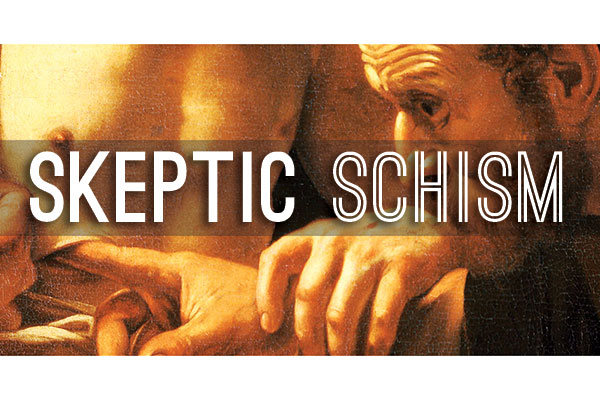Skeptic Schism | Issue 2
Pascal's Wager
Blaise Pascal, a seventeenth-century French philosopher, thought that by not believing in God you were taking a huge personal risk. His ďwagerĒ went like this: even if Godís existence seems extremely improbable to you, you should still believe in him because you have nothing to lose and everything to gain. If God exists and you believe in him, you get into heaven. If God doesnít exist and you either believe in him or you donít, nothing happens. But if you donít believe in him and he does exist, you risk missing out on heaven and landing yourself in hell for eternity. So, according to Pascal, it is rational to believe in God.
The problem is the difference between wanting to believe in something and actually believing in something. It may be rational to try to believe, but if you canít make yourself believe anything, you donít have good reason to believe. As in the example with the money and the gun, if you searched the world for evidence of God, went to church every day, prayed to God, read the Bible (which, of course, assumes youíve picked the right God), studied theosophy and told everybody around you that you believed in him, but you still knew in your mind that you really didnít believe at all, would God be convinced? Or would he go ahead and smite you for lying?
Surely God would appreciate you admitting to honest disbelief more than having you lie about believing in him. A sincere disbelief in God (or John Key on a tricycle) is more admirable than an insincere hedging of your bets to try to win yourself a reward.



